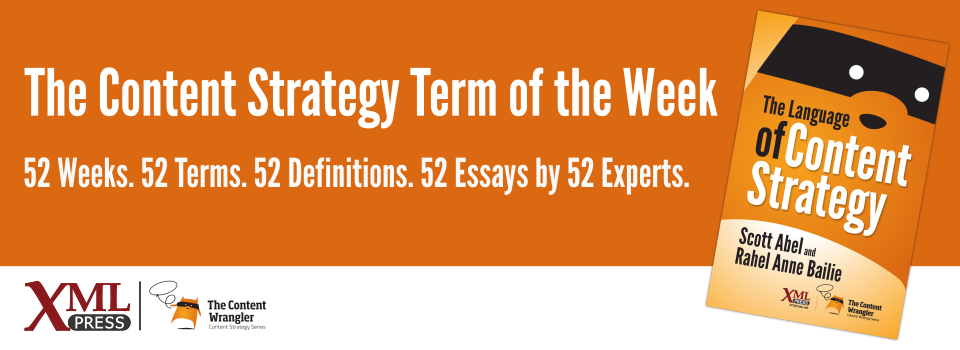What is it?
The practice of actively maintaining monolingual and multilingual dictionaries and glossaries. Terms are organized and controlled, with a clear set of guidelines dictating their use.
Why is it important?
Enables correct and consistent use of terms throughout the translation process or any other effort requiring accurate vocabulary usage.
Why does a content strategist need to know this?
Words (or phrases) are used to tag content or communicate an organization’s offerings, such as products, services, or industry insights. They are incorporated into language used in a variety of content types, including: marketing collateral, legal documentation, user manuals, product information, informational videos, and the like. These terms are consciously chosen by content creators and, therefore, reflect the creator’s perspective and that of a specific organizational business unit as well as geographical region. As globalization increases, communication of a consistent message in one or more languages is vital. Inconsistent use of terminology can, at the very least, cause confusion or, more seriously, result in legal problems.
There are many advantages to carefully controlling term use: consistency of voice and tone, linguistic quality, uniform word usage across an entire organization (including branded and company-specific terms), conformance to specific legal requirements, and protection of trademarked and registered product names. Careful terminology management can facilitate translation reuse, reduce errors during authoring or translation, shorten revision time, and help streamline the content creation process.
Terminology management systems maintain terms in a central repository and allow for the organization of approved (and unapproved) terms in one or more languages. They define terms when needed and provide editorial usage guidelines based on pre-established rules. Governance over terms is based both on these rules and on governance committee decisions. Implementation of a metrics strategy can also help identify opportunities to improve terminology usage and overall productivity.

